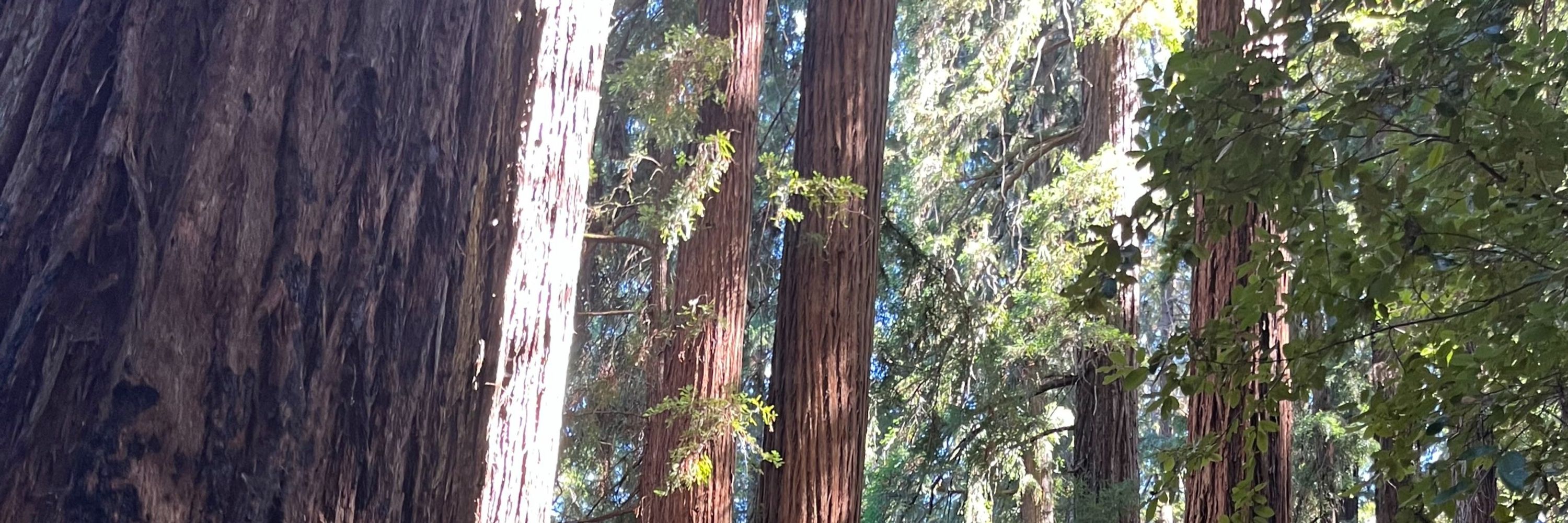
It‘s not a point of view, it’s a point of *do*. Cognition is like digestion. Plant I > AI. Phil of Mind = Phil of Biology.
https://philosophy.stanford.edu/people/mariel-goddu
-Paper: "Intuitive physics is for action"
-Chapter: "Toward a 5E (evolutionary) cognition"
-Essay: "How to assemble a consciousness"
-German: C1.1/C1.2
June 🇺🇸 |July 🇩🇪 | August 🇺🇸
-Modal Logic
-Merleau-Ponty
-Soc. & Pol. Philosophy of Language
-Teaching Methods in Philosophy
-Writing (ongoing): "Intuitive Physics is for Action"; "Cognitive Ontology through the Lens of Biology"
-Teaching Assistant, Mathematical Logic
-Epistemology
-Proseminar
-Paper: "Intuitive physics is for action"
P.S. CUP has made the PDF of my book free to download for 2 more weeks. Get it here: www.cambridge.org/core/element...
What is Life? Revisited. A spot-on title for Dan's @djnicholson.bsky.social book, which happens to be a gem.
After reading it and discussing with Dan, I can only picture Schrödinger as a cartoon villain now.
braininspired.co/podcast/224/

P.S. CUP has made the PDF of my book free to download for 2 more weeks. Get it here: www.cambridge.org/core/element...

We compared deer mice evolved in forest vs prairie habitats. We found that forest mice have:
(1) more corticospinal neurons (CSNs)
(2) better hand dexterity
(3) more dexterous climbing, which is linked to CSN number🧵
We compared deer mice evolved in forest vs prairie habitats. We found that forest mice have:
(1) more corticospinal neurons (CSNs)
(2) better hand dexterity
(3) more dexterous climbing, which is linked to CSN number🧵
doi.org/10.1093/jeb/...
Pienaar et al. 2025

doi.org/10.1093/jeb/...
Pienaar et al. 2025
An amazing set of resources for all scientists working on the brain!
🧠 Immersive feature:
www.nature.com/immersive/d4...
🧠 Perspective:
www.nature.com/articles/s41...

An amazing set of resources for all scientists working on the brain!
🧠 Immersive feature:
www.nature.com/immersive/d4...
🧠 Perspective:
www.nature.com/articles/s41...
#HPBio
www.routledge.com/The-Riddle-o...

#HPBio
www.routledge.com/The-Riddle-o...


For thousands of years, we’ve thought so.
Our new paper, out today in Science, suggests otherwise!
We present evidence that chimpanzees possess several core capacities for rational thought.
Check out Emily's thread: bsky.app/profile/emil...

For thousands of years, we’ve thought so.
Our new paper, out today in Science, suggests otherwise!
We present evidence that chimpanzees possess several core capacities for rational thought.
Check out Emily's thread: bsky.app/profile/emil...
Our latest in @natrevneuro.nature.com
Link: rdcu.be/eMX3E
@jeffcolgren.bsky.social @msarscentre.bsky.social

Our latest in @natrevneuro.nature.com
Link: rdcu.be/eMX3E
@jeffcolgren.bsky.social @msarscentre.bsky.social
"What does a reaction like this reveal? It reveals a a kind of learned helplessness. A mind so
"We’re a community of experts, terrified of a harmless prank site, yet seemingly unbothered by the multi-billion dollar publishing industry that actually takes our copyright, our labor, and our intellectual property every single day."

"What does a reaction like this reveal? It reveals a a kind of learned helplessness. A mind so
"We’re a community of experts, terrified of a harmless prank site, yet seemingly unbothered by the multi-billion dollar publishing industry that actually takes our copyright, our labor, and our intellectual property every single day."

"We’re a community of experts, terrified of a harmless prank site, yet seemingly unbothered by the multi-billion dollar publishing industry that actually takes our copyright, our labor, and our intellectual property every single day."


www.nytimes.com/2025/10/15/u...
www.nytimes.com/2025/10/15/u...

www.nytimes.com/2025/10/10/u...

www.nytimes.com/2025/10/10/u...
@beakr.bsky.social @gualtiero.bsky.social
Thread & link 🔗 below👇


@beakr.bsky.social @gualtiero.bsky.social
Thread & link 🔗 below👇
With Alon Hafri, @veroniqueizard.bsky.social, @chazfirestone.bsky.social & Brent Strickland
Read it here: doi.org/10.1017/S014...
A short thread [1/5]👇

With Alon Hafri, @veroniqueizard.bsky.social, @chazfirestone.bsky.social & Brent Strickland
Read it here: doi.org/10.1017/S014...
A short thread [1/5]👇
(2nd yr of 2nd PhD)
Annual reminder: It’s never too late to do what makes you happy!

(2nd yr of 2nd PhD)
Annual reminder: It’s never too late to do what makes you happy!
We propose a developmental approach to 'cognitive homologies' –– (cognitive capacities that are "the same across species") –– as a means for carving up cognition.
Our approach adopts...
We propose a developmental approach to 'cognitive homologies' –– (cognitive capacities that are "the same across species") –– as a means for carving up cognition.
Our approach adopts...
-Teaching Assistant, Mathematical Logic
-Epistemology
-Proseminar
-Paper: "Intuitive physics is for action"
-Paper: "Intuitive physics is for action"
-Chapter: "Toward a 5E (evolutionary) cognition"
-Essay: "How to assemble a consciousness"
-German: C1.1/C1.2
June 🇺🇸 |July 🇩🇪 | August 🇺🇸
-Modal Logic
-Merleau-Ponty
-Soc. & Pol. Philosophy of Language
-Teaching Methods in Philosophy
-Writing (ongoing): "Intuitive Physics is for Action"; "Cognitive Ontology through the Lens of Biology"
-Teaching Assistant, Mathematical Logic
-Epistemology
-Proseminar
-Paper: "Intuitive physics is for action"
We propose a developmental approach to 'cognitive homologies' –– (cognitive capacities that are "the same across species") –– as a means for carving up cognition.
Our approach adopts...
We propose a developmental approach to 'cognitive homologies' –– (cognitive capacities that are "the same across species") –– as a means for carving up cognition.
Our approach adopts...
"Cognitive ontology in terms of cognitive homology: The role of brain, behavior, and environment for individuating cognitive categories" #philsci #CognitiveNeuroscience
Thanks to @marielgoddu.bsky.social and to @gualtiero.bsky.social!
www.routledge.com/Neurocogniti...

"Cognitive ontology in terms of cognitive homology: The role of brain, behavior, and environment for individuating cognitive categories" #philsci #CognitiveNeuroscience
Thanks to @marielgoddu.bsky.social and to @gualtiero.bsky.social!
www.routledge.com/Neurocogniti...
(h/t @evanwestra.bsky.social for that info & this video)
www.youtube.com/watch?si=gUN...
(h/t @evanwestra.bsky.social for that info & this video)
www.youtube.com/watch?si=gUN...

